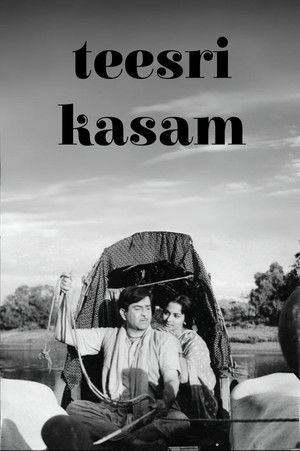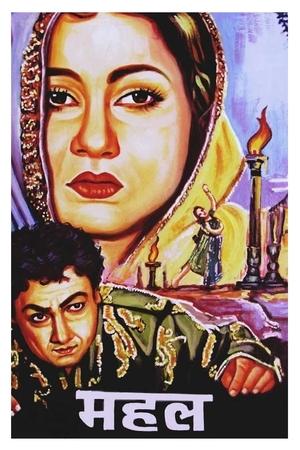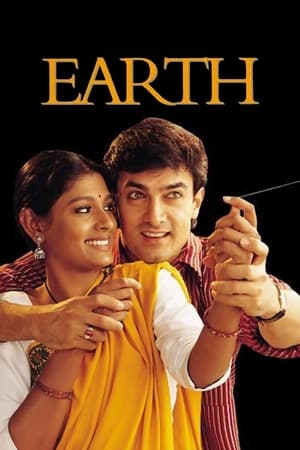
Ahmiyat(2024)
Ahmiyat
Ahmiyat is an Indian film directed by Himanshu Shrivastav and written/produced by Kamlesh Patidar. The movie stars Lata Sabarwal, Kamlesh Patidar, Shaurya Saxena, Himanshu Shrivastava, and others. It intricately explores the complexities of human connections and the profound impact of choices, resonating deeply with audiences through compelling storytelling and heartfelt performances.
Movie: Ahmiyat
Top 10 Billed Cast
Mother
Rohan (son)

Ahmiyat
HomePage
Overview
Ahmiyat is an Indian film directed by Himanshu Shrivastav and written/produced by Kamlesh Patidar. The movie stars Lata Sabarwal, Kamlesh Patidar, Shaurya Saxena, Himanshu Shrivastava, and others. It intricately explores the complexities of human connections and the profound impact of choices, resonating deeply with audiences through compelling storytelling and heartfelt performances.
Release Date
2024-03-21
Average
0
Rating:
0.0 startsTagline
Ahmiyat
Genres
Languages:
Similar Movies
 5.3
5.3Wajah Tum Ho(hi)
A hooded vigilante is broadcasting murders on a news channel. Will the police catch him alive before he live-casts another death?
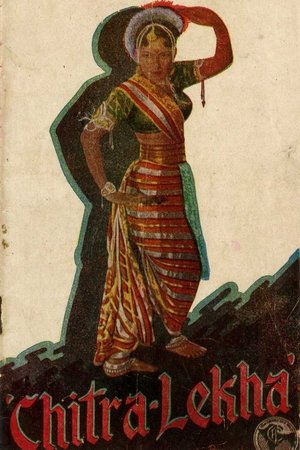 0.0
0.0Chitralekha(hi)
Chitralekha is a 1941 Indian Hindi-language film, directed by Kidar Sharma and based on the 1934 Hindi novel of the same name by Bhagwati Charan Verma.
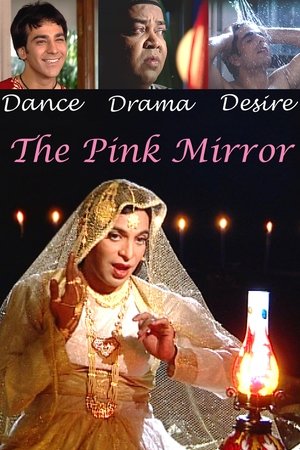 4.7
4.7The Pink Mirror(hi)
Award-winning Indian film drama. Said to be the first Indian film to comprehensively focus on Indian trans people, with the entire story revolving around two trans women and a gay teenager's attempts to seduce a man - Samir. The film explores the taboo subject of trans people in India, which is still much misunderstood and ridiculed.
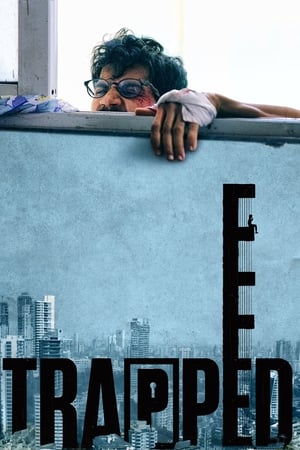 6.9
6.9Trapped(hi)
A man gets stuck in an empty high rise without food, water or electricity.
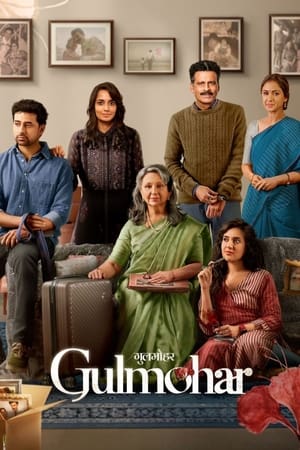 6.2
6.2Gulmohar(hi)
Batra family has just four days left to vacate their house of 34 years. Amidst the mayhem and uncertainties of the future, insecurities and secrets surface.
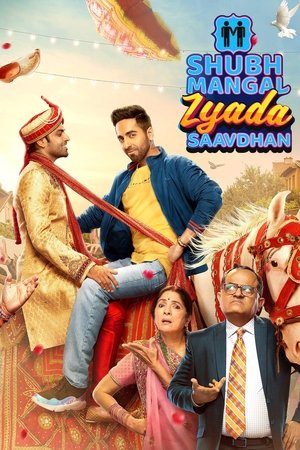 6.0
6.0Shubh Mangal Zyada Saavdhan(hi)
Partners Karthik and Aman don't have it easy in their road to achieving a happy ending, while Aman's family tries to get him married to someone else, Karthik doesn't step down unless he marries Aman. A sequel to the 2017 film, titled Shubh Mangal Saavdhan.
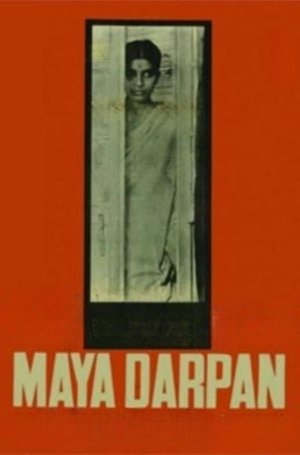 6.4
6.4Maya Darpan(hi)
In his debut feature film, Kumar Shahani employs highly innovative forms for depicting the conflict between oppressive feudal norms and a changing industrial landscape while making female sexuality and its complex mindscape the focus. The protagonist, Taran, the younger daughter of a Rajasthani zamindar revolts against the social code set by the class system by a sexual encounter with an engineer. This film was one of the earlier and successful examples experimentation in colour during the advent of New Indian cinema.
 7.2
7.2Commando 3(hi)
A mysterious man is on an impending mission to attack the country from his base in London. Karan Singh Dogra sets out to hunt down the antagonist aided by the British Intelligence.
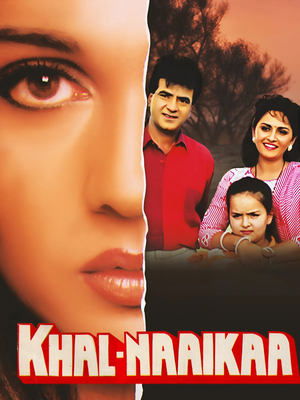 7.0
7.0Khal-Naaikaa(hi)
The lesser known Bollywood remake of The Hand that Rocks the Cradle.
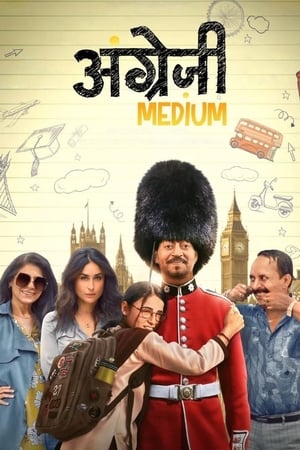 7.1
7.1Angrezi Medium(hi)
When his daughter decides to further her studies in London, a hardworking Haryanvi businessman does everything in power to make her dreams come true.
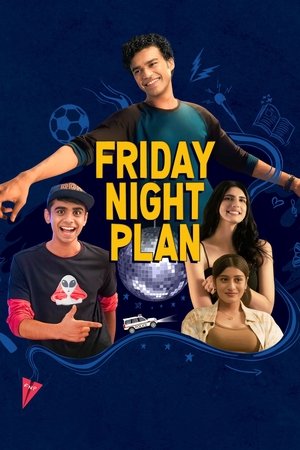 5.9
5.9Friday Night Plan(hi)
When their mother takes off on a business trip, two bickering brothers unite to secretly attend the hottest party of the year before she returns.
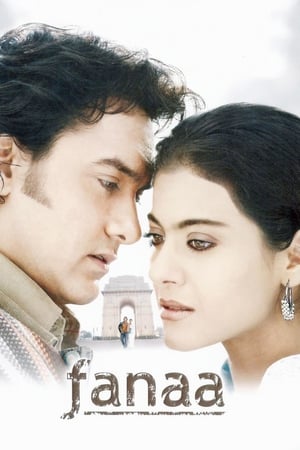 6.8
6.8Fanaa(hi)
Zooni Ali Beg is a blind Kashmiri girl who travels without her parents for the first time with a dance troupe to Delhi to perform in a ceremony for independence day. On her journey, she meets Rehan Khan, a casanova and tour guide who flirts with her. Although her friends warn Zooni about him, she cannot resist falling in love with him and he takes her on a private tour of New Delhi. But there is more to Rehan than meets the eye and Zooni will have to make a heartbreaking decision.
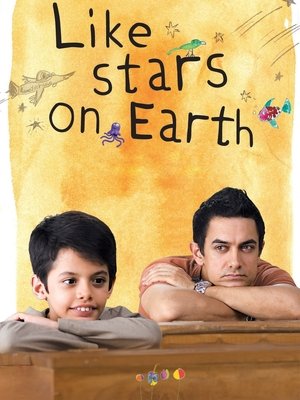 8.0
8.0Like Stars on Earth(hi)
Ishaan Awasthi is an eight-year-old whose world is filled with wonders that no one else seems to appreciate. Colours, fish, dogs, and kites don't seem important to the adults, who are much more interested in things like homework, marks, and neatness. Ishaan cannot seem to get anything right in class; he is then sent to boarding school, where his life changes forever.
 6.8
6.8Water(hi)
The year is 1938, and Mahatma Gandhi's groundbreaking philosophies are sweeping across India, but 8-year-old Chuyia, newly widowed, must go to live with other outcast widows on an ashram. Her presence transforms the ashram as she befriends two of her compatriots.
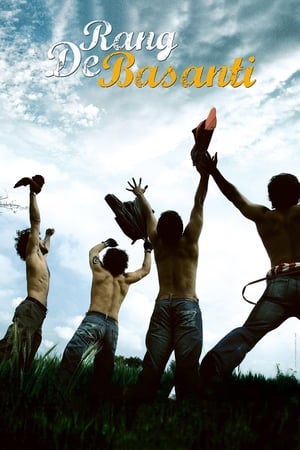 7.1
7.1Rang De Basanti(hi)
After a group of friends graduate from Delhi University, they listlessly haunt their old campus, until a British filmmaker casts them in a film she's making about freedom fighters under British rule. Although the group is largely apolitical, the tragic death of a friend owing to local government corruption awakens their patriotism. Inspired by the freedom fighters they represent in the film, the friends collectively decide to avenge the killing.
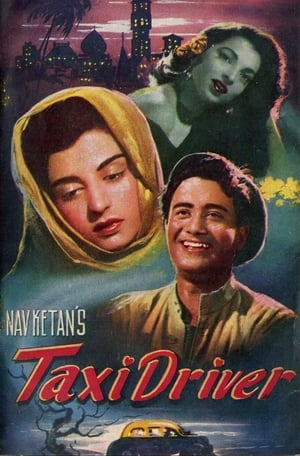 4.8
4.8Taxi Driver(hi)
About a taxi driver in Mumbai, Mangal, who is called "Hero" by his friends. A driver who drives a cab by day, then drinks at night, listens to his singer girlfriend, Sylive, and then goes into a drunken stupor - and wakes up with a hangover. One day, while assisting another taxi driver, Mangal comes to the assistance of a damsel in distress, who is being molested by two thugs. Mangal gallants rescues her, and attempts to take her to her destination, to no avail, as the person she is looking for has moved. The next day, Mangal and the young woman, Mala, again attempt to seek Ratanlal, a music director, but the entire day is spent in vain. Mala lives in Mangal's tiny apartment and both become attracted to each other. When Mala finds out about Sylvie, she leaves him. He goes in her search, but finds that she has become a famous singer with the help of her music director friend.
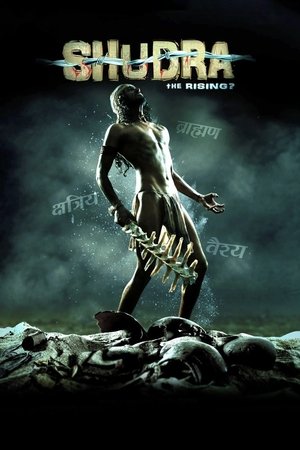 4.8
4.8Shudra: The Rising(hi)
Shudra: The Rising is a Hindi language film with a storyline based on the caste system in ancient India, and more specifically the Hindu Varna system. It is directed by Sanjiv Jaiswal and dedicated to Bhim Rao Ambedkar. The film depicts the four basic units of the caste system - the Brahmins, Kshatriyas, Vaishyas and the Shudras. The film shows various rules imposed on the Shudras such as waking with a bell around their ankles and a long leaf behind their back,and a pot hanging around their neck.
